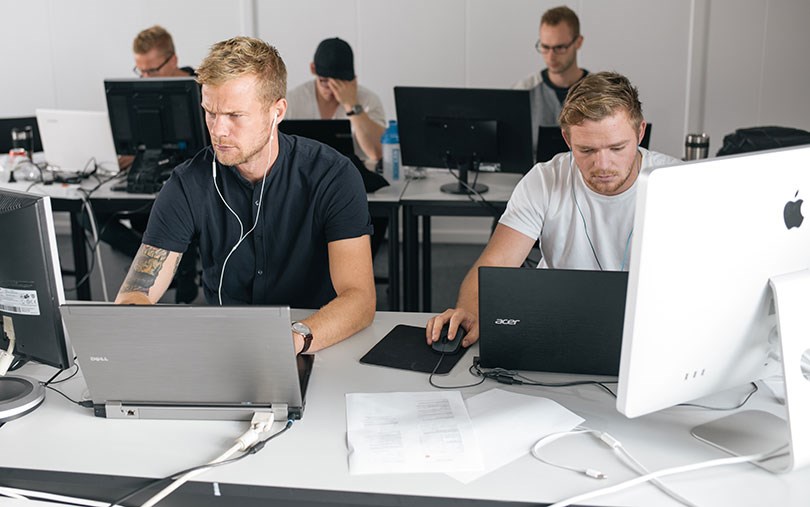Energy Technology
Energy Technology is an Academic Profession degree of 120 ECTS that will teach you all the tools to help solve the climate crisis.
An energy technologist is a technical advisor within sustainability and green transition. As an energy technologist, you work to find and implement energy savings in industry, buildings, and transport, and you thereby contribute to reducing CO2 emissions and solving the world's current climate challenge.
As an energy technologist, you are a coordinator and advisor between different professional groups, so that building installations, process and production facilities are carried out at a level where energy optimization, sustainability and the implementation of the latest technologies are taken into account. Your title can be, for example, project manager, consultant, operations advisor, energy advisor or energy manager.

Facts
Title
Energy Technologist
Education Level
Academy Profession degree - 120 ECTS points
Duration
2 years
Internship
3 months SU-eligible internship
Study Start
August September
Location
Randers or online
Language
Danish
Content and structure
The education combines theory and practice so that you gain both practical and theoretical knowledge about the optimization of energy supply systems, air conditioning systems, process systems lighting, etc.
You choose whether you want to study from home via distance learning or attend the campus in Randers. If you participate online, you must attend the class while it is taking place. However, you must be aware that this may involve physical attendance at exams or parts of the teaching.
On the course, you will work a lot with sustainability, environmental management, energy management, energy management, climate legislation, climate agreements, CO2 reduction, and general sustainable development with a focus on the UN's global goals.
Practically, you will get to work with the implementation of solar cells, heat pumps, wind turbines, and other renewable energy solutions.
The teaching alternates between group teaching, independent task-solving and project work.
In the fourth and last semester of the education, you start an internship. Here you have to test the theoretical knowledge from the teaching in a practical setting. After completing the internship, all you have to do is write the final assignment.
Curriculum
-
Sustainability
We work with the basic principles of sustainability. For example values, sustainability and sustainable development, global distribution, rules, economic growth, green growth, zero growth, democracy and sustainability. We also cover climate considerations, energy policy and planning, methods, environmental management, ecodesign, innovative project evaluation, CO2 measurement and analysis.
-
The energy of the building complex
In this part of the education, you learn about construction engineering and the various subject areas below - for example, plumbing and electricity. You learn to make basic calculations and to make energy-efficient solutions within heating and indoor air conditioning systems. Just as you learn to advise on energy-efficient solutions , which you can use in a future career as, for example, an energy consultant .
And then you also learn to put those t's into practice as a project manager.
-
Company-related elements
Innovation, business understanding, and project management are the focus here, and you get to know the central concepts, methods, and tools both theoretically and practically. For example, you learn to think innovatively and to include all aspects of a company in the planning of an energy efficiency project.
In the training to become an energy technologist, you are also professionally ready to work with project management.
-
Energy supply and turnover
Energy is complex, and you need to learn about the complexity to optimize it. This means that you must be introduced to how to do an energy analysis. And you must also learn how to make an energy map and a heating plan.
For example, you will learn about energy machines, energy conversion systems, energy stores, energy carriers, and energy sources - in short, it's about energy, energy and energy.
This also means that in your future job as an energy technologist, you are well equipped to deal with complex problems and find solutions to them.
-
Energy-efficient processes and production facilities
In this core area, you learn about various energy-efficient processes and facilities. And you will learn how to optimize a plant so that it runs as energy-efficiently as possible.
You will also be involved in assessing and selecting energy-optimal solutions based on the combined consideration of the environment and economy.
With this knowledge, you are professionally equipped for an energy-related job as, for example, energy consultant, energy manager or energy advisor.
Was this article helpful?